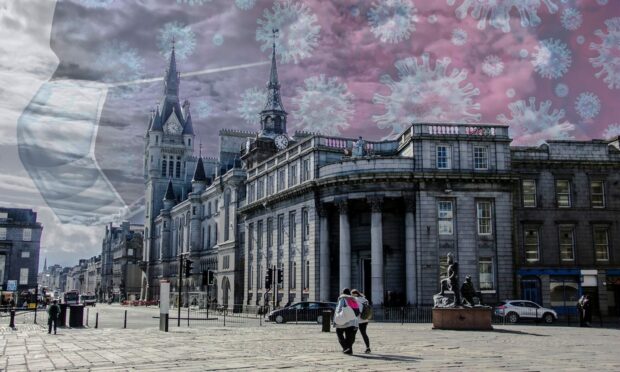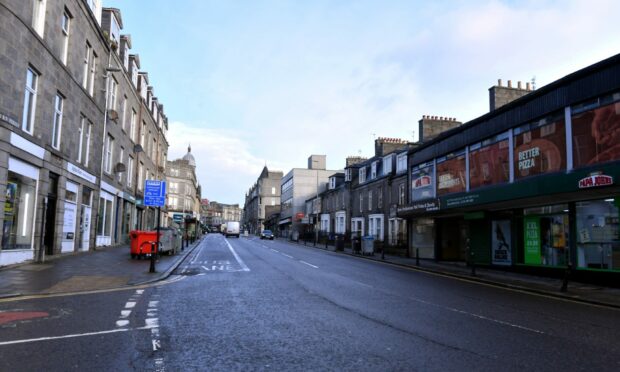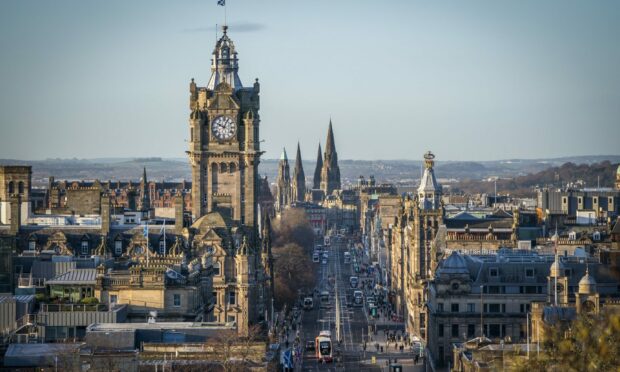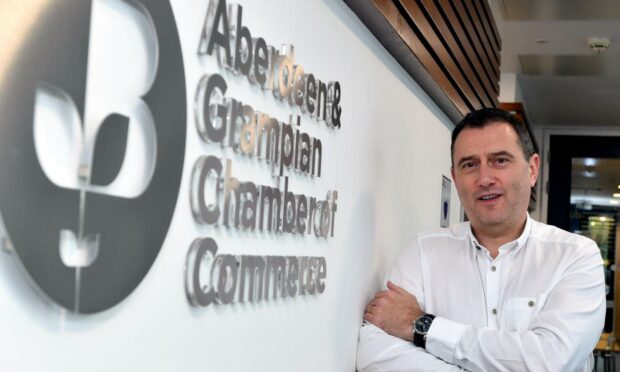Business leaders in Aberdeen, Glasgow and Edinburgh have joined forces to demand local tax-raising powers and devolution of immigration laws in a bid to save Scotland’s biggest cities from the pandemic’s “toxic” fall-out.
In a major new report, radical action is recommended to empower civic leaders, reform business rates, overhaul transport links and create a new purpose for the nation’s “devastated” city centres.
The measures are proposed in response to the “cocktail of change” that has hit cities in recent years as a result of Covid-19 restrictions, Brexit and climate change.
‘Shocks to the system’
The authors, led by Glasgow School of Art professor Brian Evans, said: “These have caused, and continue to cause, shocks to the system – and they interact.
“Together they stoke uncertainty and make already difficult challenges even harder to surmount.
“The cumulative effects, without understanding, judgement and leadership, could be toxic for our cities and their peoples.”
The study was commissioned by the chambers of commerce for Aberdeen, Glasgow and Edinburgh, as well as Brodies LLP and accounting firm Anderson Anderson & Brown.
Despite accounting for 22% of Scotland’s land mass, the three city regions were said to house 68% of the nation’s population and 73% of the country’s economic value.
But these cities had been “hit hardest” by the pandemic, which had “hollowed out our shared spaces, devastated high streets and accelerated societal change”.
What are the key challenges?
The report identifies five key challenges facing the cities:
- More people work from home and online shopping continues to rise.
- Buildings require “industrial scale” work to meet environmental targets.
- An ageing population affects tax revenues, transport and social services.
- Slow rail links to other Scottish cities and fewer air routes.
- Outdated and strained planning and tax systems.
The report said: “Cities need to be dynamic, or they decline. Therefore, a failure of leadership now would be toxic for our AGE (Aberdeen, Glasgow and Edinburgh) cities.
“Scotland needs its AGE cities at the top of their game if it is to remain globally competitive in the race for investment, human capital and prosperity.”
Seven recommendations were made by the authors, including politically significant demands for immigration devolution and new tax powers for city councils.
The authors argued that the cities needed to be given control of their own destinies, and this means devolving “meaningful fiscal and other levers”, empowering cities in a model already in place across much of Europe and North America.
New alliance
The three cities were also advised to “form an alliance” to work collectively to accelerate their journey to becoming net zero cities, mirroring the principles of the global “C40
alliance”, which includes London.
On immigration, the report backs Scottish Government calls for Scotland to be given control of its borders in order to address the nation’s ageing and declining population.
Other ideas include “significant investment in growing and upskilling our strategic planning service”, as well as creating a “fit for purpose new rates system”, and transformational investment in rail infrastructure.
Russell Borthwick, chief executive of Aberdeen & Grampian Chamber of Commerce, said: “This report must be used to provide the launchpad to propel Scotland forward in the century of the city.
“And we ask Scotland’s policy makers to urgently work together with business communities to make the necessary interventions that will shape the next chapter for our AGE cities – and it must happen at pace.”
Elaine Farquharson-Black, partner and co-head of planning at Brodies, said: “The recommendations set out in the report come at a critical time for our cities and provide useful direction to encourage economic recovery at a time of unprecedented change.”



